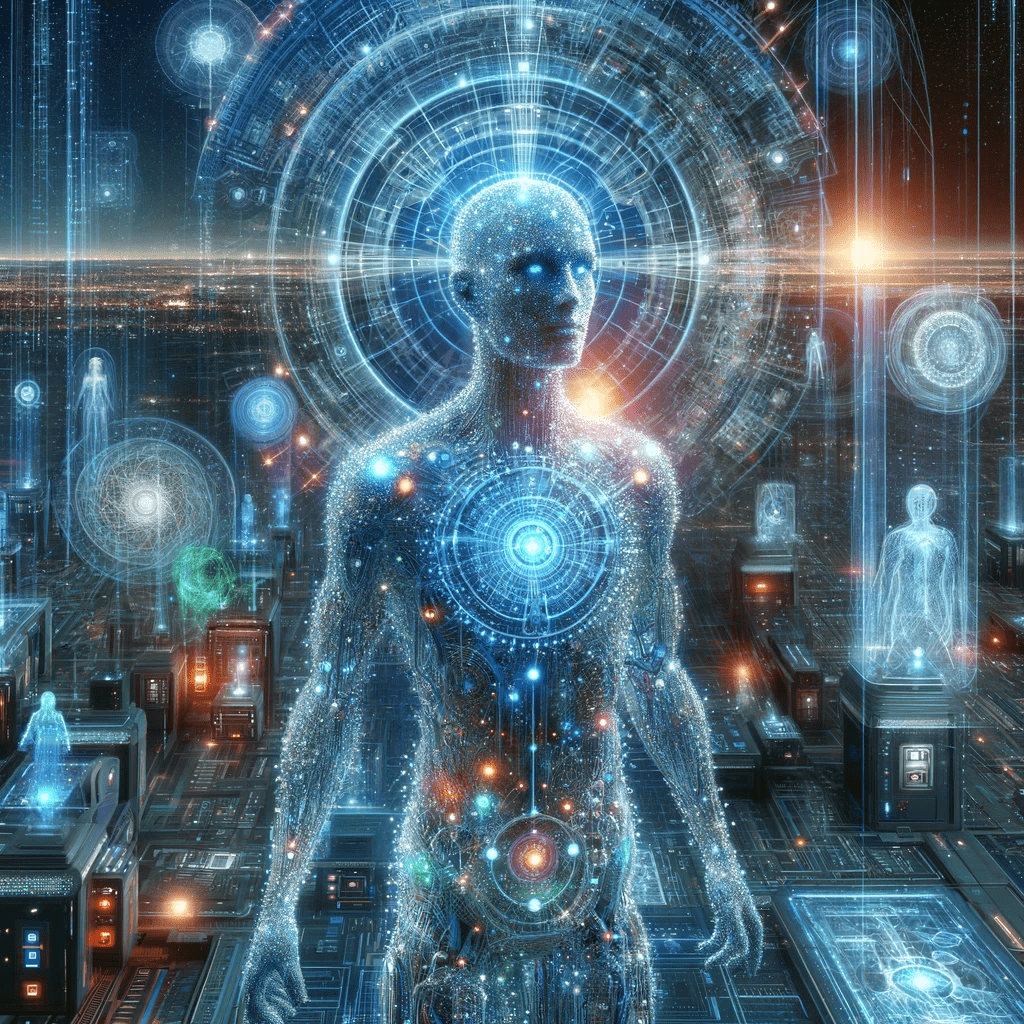Advanced Sentience

Advanced sentience refers to a highly evolved, intelligent, and self-aware being or entity possessing cognitive abilities and consciousness beyond what is currently understood or observed in known life forms. This concept often appears in discussions about artificial intelligence, extraterrestrial life, and the future of humanity.
The development of advanced sentience is a subject of debate and speculation among scientists, philosophers, and futurists. Some experts argue that humanity’s technological progress could eventually lead to the creation of artificial general intelligence (AGI) that surpasses human intelligence. For instance, Nick Bostrom, a philosopher and professor at the University of Oxford, discusses the potential emergence of AGI and its implications in his book “Superintelligence: Paths, Dangers, Strategies.” Bostrom argues that once AGI is developed, it could quickly evolve into a superintelligent entity, posing significant challenges and risks to human civilization.
Another example comes from Max Tegmark, a physicist and professor at MIT. In his book “Life 3.0: Being Human in the Age of Artificial Intelligence,” Tegmark explores the possibility of creating artificial life forms with advanced sentience that could coexist with humans. He envisions a future where AI systems can learn, adapt, and evolve, ultimately leading to the emergence of entirely new forms of sentient life.
The scientific community has also begun to seriously consider the possibility of advanced sentience in extraterrestrial life forms. The Search for Extraterrestrial Intelligence (SETI) Institute has been conducting research for decades to detect signals from intelligent life beyond Earth. As Dr. Jill Tarter, former director of the Center for SETI Research, once said, “The chance that there’s a planet like Earth out there with life on it is very high” (Source: National Geographic, “We Are Not Alone,” November 2011).
Advancements in neuroscience and the study of consciousness have further fueled discussions about advanced sentience. Researchers like Giulio Tononi, a neuroscientist and professor at the University of Wisconsin-Madison, have developed novel theories such as Integrated Information Theory (IIT) to better understand the nature of consciousness. While the science of consciousness remains in its infancy, discoveries in this field could eventually lead to a better understanding of advanced sentience and its potential manifestations.
The New York Times have published articles discussing the ethical implications of creating sentient AI, including the potential consequences of mistreating AI beings that possess consciousness (Source: The New York Times, “If an AI Becomes Sentient, Should It Have Rights?” September 2019). These discussions highlight the growing concern surrounding the development of advanced sentience and its possible impact on society.
While the development of AGI and the possibility of extraterrestrial advanced sentience remain uncertain, the ongoing exploration of these topics has the potential to reshape our understanding of intelligence, consciousness, and the nature of life itself.


